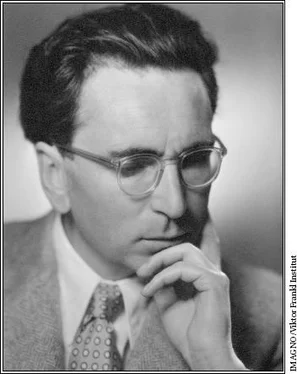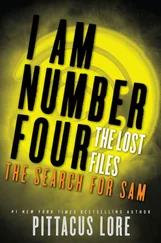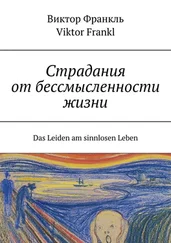While I was working as a doctor in the typhus block, I also had to take the place of the senior block warden who was ill. Therefore, I was responsible to the camp authority for keeping the hut clean—if “clean” can be used to describe such a condition. The pretense at inspection to which the hut was frequently submitted was more for the purpose of torture than of hygiene. More food and a few drugs would have helped, but the only concern of the inspectors was whether a piece of straw was left in the center corridor, or whether the dirty, ragged and verminous blankets of the patients were tucked in neatly at their feet. As to the fate of the inmates, they were quite unconcerned. If I reported smartly, whipping my prison cap from my shorn head and clicking my heels, “Hut number VI/9: 52 patients, two nursing orderlies, and one doctor,” they were satisfied. And then they would leave. But until they arrived—often they were hours later than announced, and sometimes did not come at all—I was forced to keep straightening blankets, picking up bits of straw which fell from the bunks, and shouting at the poor devils who tossed in their beds and threatened to upset all my efforts at tidiness and cleanliness. Apathy was particularly increased among the feverish patients, so that they did not react at all unless they were shouted at. Even this failed at times, and then it took tremendous self-control not to strike them. For one’s own irritability took on enormous proportions in the face of the other’s apathy and especially in the face of the danger (i.e., the approaching inspection) which was caused by it.
In attempting this psychological presentation and a psychopathological explanation of the typical characteristics of a concentration camp inmate, I may give the impression that the human being is completely and unavoidably influenced by his surroundings. (In this case the surroundings being the unique structure of camp life, which forced the prisoner to conform his conduct to a certain set pattern.) But what about human liberty? Is there no spiritual freedom in regard to behavior and reaction to any given surroundings? Is that theory true which would have us believe that man is no more than a product of many conditional and environmental factors—be they of a biological, psychological or sociological nature? Is man but an accidental product of these? Most important, do the prisoners’ reactions to the singular world of the concentration camp prove that man cannot escape the influences of his surroundings? Does man have no choice of action in the face of such circumstances?
We can answer these questions from experience as well as on principle. The experiences of camp life show that man does have a choice of action. There were enough examples, often of a heroic nature, which proved that apathy could be overcome, irritability suppressed. Man can preserve a vestige of spiritual freedom, of independence of mind, even in such terrible conditions of psychic and physical stress.
We who lived in concentration camps can remember the men who walked through the huts comforting others, giving away their last piece of bread. They may have been few in number, but they offer suffcient proof that everything can be taken from a man but one thing: the last of the human freedoms—to choose one’s attitude in any given set of circumstances, to choose one’s own way.
And there were always choices to make. Every day, every hour, offered the opportunity to make a decision, a decision which determined whether you would or would not submit to those powers which threatened to rob you of your very self, your inner freedom; which determined whether or not you would become the plaything of circumstance, renouncing freedom and dignity to become molded into the form of the typical inmate.
Seen from this point of view, the mental reactions of the inmates of a concentration camp must seem more to us than the mere expression of certain physical and sociological conditions. Even though conditions such as lack of sleep, insuffcient food and various mental stresses may suggest that the inmates were bound to react in certain ways, in the final analysis it becomes clear that the sort of person the prisoner became was the result of an inner decision, and not the result of camp influences alone. Fundamentally, therefore, any man can, even under such circumstances, decide what shall become of him—mentally and spiritually. He may retain his human dignity even in a concentration camp. Dostoevski said once, “There is only one thing that I dread: not to be worthy of my sufferings.” These words frequently came to my mind after I became acquainted with those martyrs whose behavior in camp, whose suffering and death, bore witness to the fact that the last inner freedom cannot be lost. It can be said that they were worthy of their sufferings; the way they bore their suffering was a genuine inner achievement. It is this spiritual freedom—which cannot be taken away—that makes life meaningful and purposeful.
An active life serves the purpose of giving man the opportunity to realize values in creative work, while a passive life of enjoyment affords him the opportunity to obtain fulfillment in experiencing beauty, art, or nature. But there is also purpose in that life which is almost barren of both creation and enjoyment and which admits of but one possibility of high moral behavior: namely, in man’s attitude to his existence, an existence restricted by external forces. A creative life and a life of enjoyment are banned to him. But not only creativeness and enjoyment are meaningful. If there is a meaning in life at all, then there must be a meaning in suffering. Suffering is an ineradicable part of life, even as fate and death. Without suffering and death human life cannot be complete.
The way in which a man accepts his fate and all the suffering it entails, the way in which he takes up his cross, gives him ample opportunity—even under the most diffcult circumstances—to add a deeper meaning to his life. It may remain brave, dignified and unselfish. Or in the bitter fight for self-preservation he may forget his human dignity and become no more than an animal. Here lies the chance for a man either to make use of or to forgo the opportunities of attaining the moral values that a diffcult situation may afford him. And this decides whether he is worthy of his sufferings or not.
Do not think that these considerations are unworldly and too far removed from real life. It is true that only a few peo- ple are capable of reaching such high moral standards. Of the prisoners only a few kept their full inner liberty and obtained those values which their suffering afforded, but even one such example is suffcient proof that man’s inner strength may raise him above his outward fate. Such men are not only in concentration camps. Everywhere man is confronted with fate, with the chance of achieving something through his own suffering.
Take the fate of the sick—especially those who are incurable. I once read a letter written by a young invalid, in which he told a friend that he had just found out he would not live for long, that even an operation would be of no help. He wrote further that he remembered a film he had seen in which a man was portrayed who waited for death in a courageous and dignified way. The boy had thought it a great accomplishment to meet death so well. Now—he wrote—fate was offering him a similar chance.
Those of us who saw the film called Resurrection —taken from a book by Tolstoy—years ago, may have had similar thoughts. Here were great destinies and great men. For us, at that time, there was no great fate; there was no chance to achieve such greatness. After the picture we went to the nearest café, and over a cup of coffee and a sandwich we forgot the strange metaphysical thoughts which for one moment had crossed our minds. But when we ourselves were confronted with a great destiny and faced with the decision of meeting it with equal spiritual greatness, by then we had forgotten our youthful resolutions of long ago, and we failed.
Читать дальше












